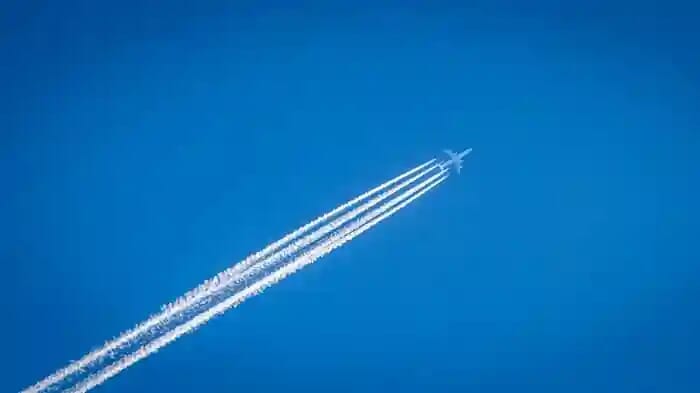Have you ever looked up at the sky and witnessed the white vapor trails left behind by airplanes? There are astonishing facts behind those trails. The white vapor trails are not smoke; rather, they are ice clouds called contrails. Contrails, short for condensation trails, are commonly referred to as "condensation trails" in the aviation world.

Contrails form due to the physical and chemical reactions between aircraft exhaust gases containing water vapor and the extremely cold atmospheric air.
Formation Process
When an airplane flies at altitudes of thousands of feet above the Earth's surface, the surrounding air temperature can drop to minus 40 degrees Celsius or even lower. Water vapor emitted from the aircraft engines, along with other gases, then condenses and freezes into water droplets or ice particles. These water droplets or ice particles then appear as white vapor trails behind the aircraft.
Contrails can have different shapes, thicknesses, and durations of appearance, depending on factors such as the type of aircraft, air humidity, altitude, and weather conditions.
Large aircraft such as the Boeing 747 typically produce 2.75 kilograms of water per second.
Thin contrails that only appear briefly indicate low humidity at altitude. If thick and persist for a long time, they indicate high humidity at altitude and can be a sign of an impending storm.
Impact on Climate and Environment?
Contrails can reflect sunlight back into space, thus reducing Earth's warming. However, contrails can also absorb heat radiation from the Earth, thus enhancing global warming. The net effect of contrails on climate remains a subject of scientific research.
Contrails are often associated with conspiracy theories known as chemtrails. Chemtrails are trails of toxic chemicals allegedly dispersed by aircraft for secret purposes, such as virus dissemination, mind control, or human population reduction.
However, this theory lacks strong scientific evidence and is dismissed by experts. Contrails are merely natural phenomena resulting from the reaction between aircraft exhaust gases and the atmosphere.



